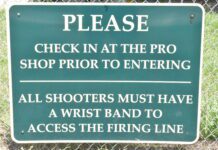(GunReports.com) — Writing at the Heritage Foundation, Ted R. Bromund, Ph.D., offered, “For much of the past two weeks, I’ve been attending the U.N.’s Arms Trade Treaty conference in New York and blogging on the craziness. A number of comments on my blogs—and many external commentators—have raised the question of whether the ATT is, pure and simple, a “gun grab” treaty.”
Let’s start with three basic points:
No external power, and certainly not the U.N., can disarm U.S. citizens or deprive us of our Second Amendment rights by force. If there is a Second Amendment problem, it comes from the actions of U.S. authorities.
The U.N. and many of its member states are hostile to the private ownership of firearms.
The U.S. is exceptional: It is one of the few nations that has a constitutional provision akin to the Second Amendment.
Thus, the default U.N. tendency—partly out of malevolence, partly out of ignorance—is to act in ways contrary to the Second Amendment, and the fundamental job of the U.S. at the U.N. is to try to stop bad things from happening. The alternative of completely quitting the entire U.N. is appealing but unwise, because the U.N. would keep doing things that would affect the U.S. even if we were not in it.
The U.N. is aware of the political dangers of appearing to stomp openly on the Second Amendment. It uses code words; it runs closed meetings—a veteran of the process tells me that meetings were normally open until the National Rifle Association began showing up at them—and, above all, it plays a long game. A big problem with talking about the ATT as a “gun grab” treaty is that the U.N. works by taking slices: when it comes to the U.N., being outraged by one development is no substitute for focusing on how the slices pile up over time.
I don’t give much too much credit to the U.S. for stating as a red line that it will uphold the Second Amendment, because that raises the question of what relevant activities are (as the State Department puts it in its red line) “permitted by law or protected by the U.S. Constitution.” Simply backing the Second Amendment is good, but it is better to spell out—as Senator Jerry Moran (R–KS) did at Heritage recently—exactly what rights and activities you believe the Second Amendment protects. Only in that way does a promise to uphold the Second Amendment carry the full weight that it deserves.
So what are the domestic concerns posed by the ATT? Four are important.
Read the rest here.





























